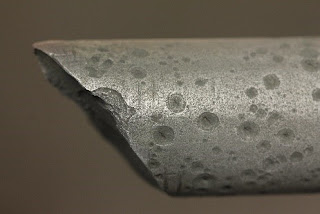What Are Horizontal Pumping Systems?
Horizontal
pumping systems come in a variety of different designs for a number of
different applications. For example, they are used in industries like
refineries, mills, and foundries as well as in domestic appliances. In fact,
horizontal pumps are probably the most common type of pumping systems.
Uses
of Horizontal Pumping Systems
In homes
and businesses, horizontal pumps are found in washing machines, HVAC systems
(such as to control condensation collection), and other appliances. They are
also beneficial for municipalities for sewage and water treatment. However, it
is industry where horizontal pumps have their greatest number of uses. For
instance, they are used for:
- Steam systems to return cooled water
to a boiler (i.e. as a boiler feed pump)
- Flood control in water flood sites
- Pumps on ships to stop watercraft
from sinking
- For descaling and dewater operations
- Irrigation
- Water injection for deep wells
- As booster pumps, including pipeline
booster pumps
- For transfer pumping, especially high-pressure
transfers
- As jet pumps
- For both conventional and
unconventional oil and gas plays — horizontal
pumping systems are appropriate no matter if the application is
upstream and uses produced water injection, crude oil transfer, or CO2
injection or if it is midstream or downstream and uses amine gas sweetening or
natural gas liquids
Why
Horizontal Pumps?
There are
many other types of pumps available that can perform the same tasks as
horizontal pumping systems. For instance, you would traditionally find screw
pumps, triplex, PD pumps, and others for many of the above applications.
However,
all these other pumps have a higher purchase price. They are also more complex
to maintain, which only adds to expenses. Plus, it usually takes more time to
receive another type of pump after you place your order. For this reason,
horizontal pumping systems tend to be the preferred option.
Other
Advantages of Horizontal Pumps
The
benefits of horizontal pumping systems go beyond their cost. A major advantage,
for instance, is their simple installation. They also provide a quiet
operation, which leads to much lower noise pollution than many other types of
pumps. This is in part thanks to the almost zero vibrations — which offers its
own set of advantages. Finally, horizontal pumps have a modular assembly and
broad pressure and flow capabilities.
Horizontal
pumping systems vary almost as much in quality as they do in potential
applications. Make sure that you choose a high-calibre system provided by a
reputable company, one which offers a vector rod
product line and other pump related services and products is ideal.

Comments
Post a Comment